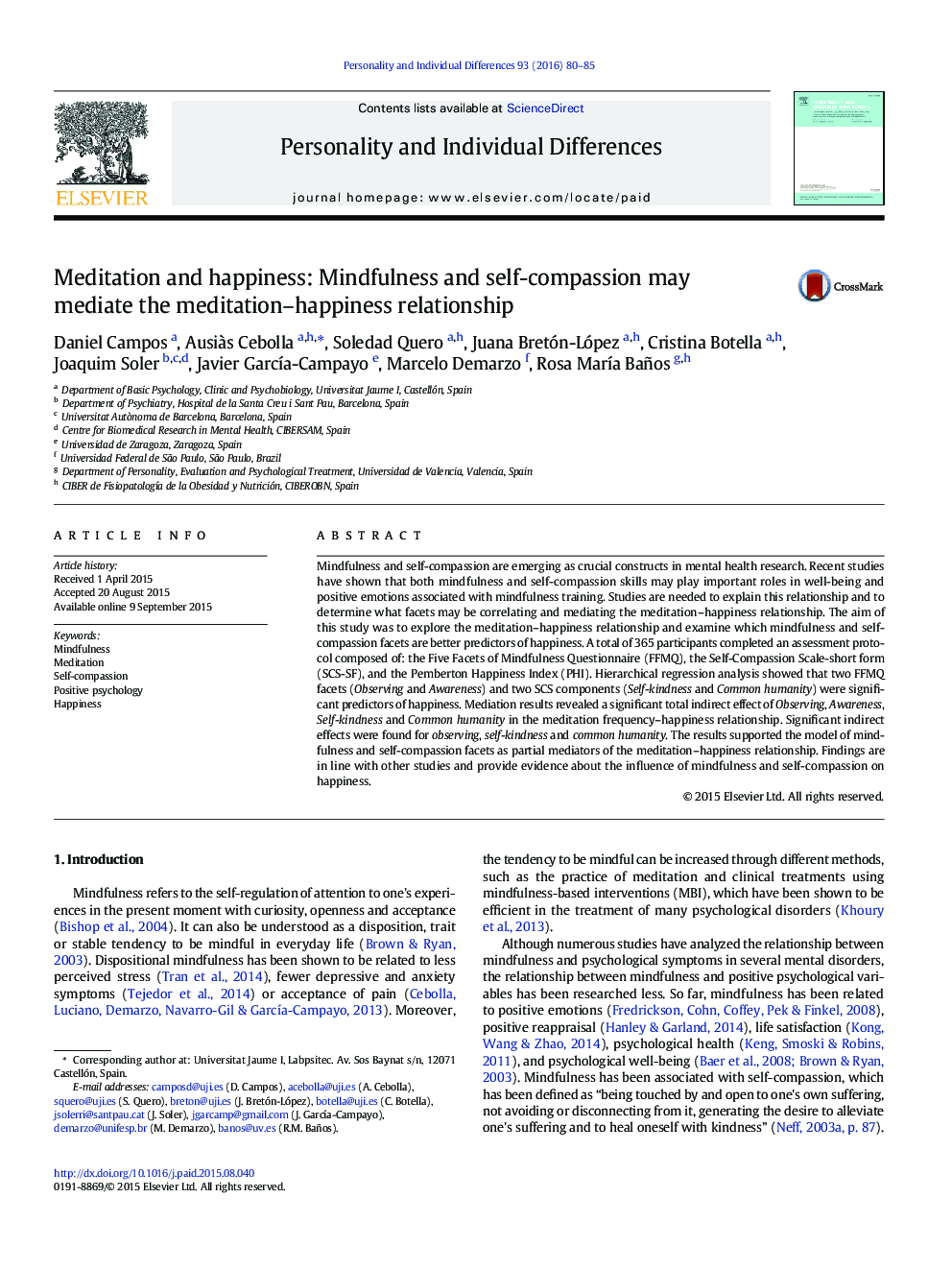| Article ID | Journal | Published Year | Pages | File Type |
|---|---|---|---|---|
| 889767 | Personality and Individual Differences | 2016 | 6 Pages |
•We explore and examine which mindfulness and self-compassion facets are better predictors of happiness.•A higher frequency of meditation is related to higher levels of dispositional mindfulness, self-compassion and happiness.•Mindfulness (observing and awareness) and self-compassion (self-kindness and common humanity) facets predict happiness.•Mindfulness and self-compassion partially mediate the meditation frequency-happiness relationship.•Only the Observing, Self-kindness and Common humanity facets were partial mediators in the meditation-happiness relationship.
Mindfulness and self-compassion are emerging as crucial constructs in mental health research. Recent studies have shown that both mindfulness and self-compassion skills may play important roles in well-being and positive emotions associated with mindfulness training. Studies are needed to explain this relationship and to determine what facets may be correlating and mediating the meditation–happiness relationship. The aim of this study was to explore the meditation–happiness relationship and examine which mindfulness and self-compassion facets are better predictors of happiness. A total of 365 participants completed an assessment protocol composed of: the Five Facets of Mindfulness Questionnaire (FFMQ), the Self-Compassion Scale-short form (SCS-SF), and the Pemberton Happiness Index (PHI). Hierarchical regression analysis showed that two FFMQ facets (Observing and Awareness) and two SCS components (Self-kindness and Common humanity) were significant predictors of happiness. Mediation results revealed a significant total indirect effect of Observing, Awareness, Self-kindness and Common humanity in the meditation frequency–happiness relationship. Significant indirect effects were found for observing, self-kindness and common humanity. The results supported the model of mindfulness and self-compassion facets as partial mediators of the meditation–happiness relationship. Findings are in line with other studies and provide evidence about the influence of mindfulness and self-compassion on happiness.
